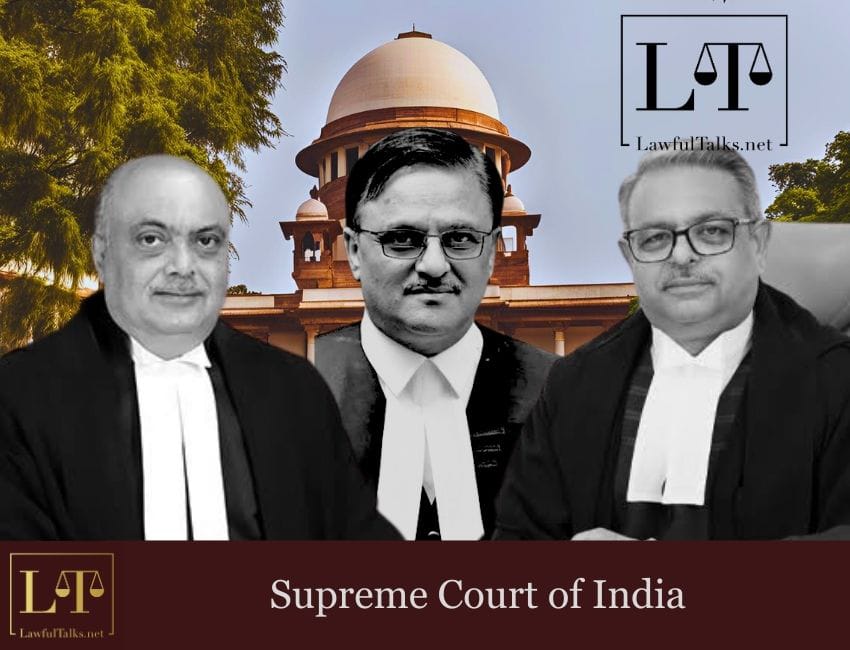Allahabad HC Sets Aside Afzal Ansari's Conviction, Allows Him to Continue as MP

The Supreme Court of India recently dealt with a significant issue concerning judicial criticism. The appeal arose from adverse remarks made by the Delhi High Court against an Additional District and Sessions Judge (ASJ) in a judgment. The judgement delivered by Justices Abhay S. Oka, Ahsanuddin Amanullah, and Augustine George Masih addressed the concerns raised by the ASJ, highlighting the importance of maintaining judicial decorum and ensuring fairness when reviewing the conduct of judicial officers.

The appellant, an ASJ in the Delhi judicial service, had passed a detailed order rejecting an anticipatory bail application. While doing so, he observed several lapses in the investigation and issued directions against the concerned police officials. These directions included initiating inquiries against the officers for their alleged misconduct.
Aggrieved by the ASJ’s remarks and directions, the Investigating Officer (IO) and the Station House Officer (SHO) filed a petition under Section 482 of the CrPC before the Delhi High Court. The High Court expunged the remarks made against the police officers but went further to criticize the ASJ’s conduct, describing his actions as a “judicial misadventures” and advising him to exercise caution in future judicial proceedings. The ASJ subsequently approached the Supreme Court to expunge the adverse remarks made against him in the High Court's judgment.
The Supreme Court noted that the observations made in paragraphs 13 and 14 of the High Court's judgment were unwarranted. The description of the ASJ’s actions as a “judicial misadventures” and the suggestion to exercise circumspection in the future were considered improper. The High Court observed that such remarks were unnecessary and could adversely affect the appellant’s career.
The Bench emphasized that while superior courts have the authority to correct errors committed by subordinate courts, personal criticism of judicial officers should be avoided. Accordingly, the Court highlighted the distinction between criticizing judicial orders and making personal remarks against a judicial officer. While it is permissible to critique the reasoning or conclusions of a judicial order, observations about a judge’s personal conduct or competence should be made only when absolutely necessary for deciding the case. The Court stated:
“There is a difference between criticizing erroneous orders and criticizing a Judicial Officer. The first part is permissible. The second category of criticism should best be avoided.”
The Court relied on the precedent set in State of U.P. v. Mohd. Naim 1963 SCC OnLine SC 22, where it was observed that judicial remarks must adhere to considerations of “justice, fair play, and restraint.” The Court further referred to Re: ‘K’, A Judicial Officer (2001) 3 SCC 54, emphasizing that judicial independence must be preserved, and any personal criticism must be avoided unless absolutely necessary.
The Court also observed:
“The High Court could not have used a judgment on the judicial side to advise individual Judicial Officers. That can only be done on the administrative side in an appropriate case.”
Acknowledging the immense workload and pressures faced by judicial officers, the Supreme Court emphasized that judges are human and prone to making errors. Such mistakes should be corrected by superior courts without resorting to personal criticism. The Court stated:
“The Judges are human beings. All human beings are prone to committing mistakes. To err is human.”
The Court also cited All India Judges’ Association (3) v. Union of India (2002) 4 SCC 247, stressing the systemic challenges faced by the judiciary due to an inadequate judge-to-population ratio, leading to increased stress and a higher likelihood of errors.
The Supreme Court concluded that the remarks made by the Delhi High Court against the ASJ were unnecessary and improper. The Court directed the expungement of paragraphs 13 and 14 from the High Court’s judgment. However, it clarified that this decision would not preclude the High Court from addressing the appellant’s conduct through administrative mechanisms, if deemed necessary.
Case Details- Sonu Agnihotri v. Chandra Shekhar
Advocates for Petitioner -Mr. Vivek Narayan Sharma, AOR Mr. Sagar Suri, Adv. Mr. Kabir Sagar Ghosh, Adv. Ms. Shruti Priya Mishra
Advocates for Respondents- Mr. S.V. Raju, A.S.G. Mr. Neeraj Shekhar, AOR Mrs. Kshama Sharma, Adv. Mr. Rajesh Kumar Maurya, Adv. Mr. Brijender Chahar





























































































































































































































































































































































































































































































































































































































































































































































